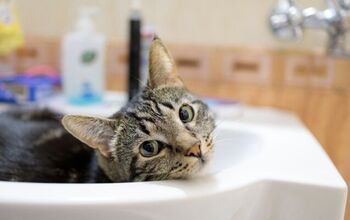What You Need To Know About Dog Insurance Policies

When it comes to owning a dog, there many things you need to think about including providing your pet with proper care. Taking your dog to the vet for a simple check-up can cost $100 or more and the cost of emergency treatments can be nearly unmanageable. If you are worried about being able to cover the costs of your dog’s medical care, you might be thinking about purchasing a pet insurance policy. Pet insurance can be a good option, but only if you understand it and know how to use it properly. We’ve put together some valuable information about dog insurance policies so you can be fully informed before you decide whether to buy one.
Related: Types Of Dog Insurance Policies
Why Should I Buy Dog Insurance?
The truth of the matter is that health care (for both people and pets) is not getting any cheaper. The owner of a completely healthy dog may still spend hundreds of dollars per year on veterinary services for check-ups, tests and vaccinations. If your dog becomes ill or suffers from an accident, those costs can skyrocket into the thousands. Pet insurance policies, like health insurance policies for humans, are designed to help offset those unexpected costs. In most cases, pet insurance policies work by reimbursing the pet owner for a portion of covered services. If your dog needs surgery or cancer treatment, this can go a long way in helping you to manage your expenses.
Related: Why Pet Insurance Is Worth It
Useful Terms to Know
In order to understand pet insurance policies, there are a few terms you need to know:
- Coinsurance: a portion of the cost of covered services you are expected to pay
- Deductible: a fixed amount you must pay for any covered service before the plan provides reimbursement
- Pre-Existing Condition: an illness or recurrence of an illness which first occurred prior to the inception of the policy (services related to this condition are generally not covered)
- Premium: the monthly fee you pay to be covered by the plan
Here’s an example of how a pet insurance policy might work:
Let’s say that your dog, Roxie, is covered by ABC Pet Insurance for accidents and illness. You may a monthly premium of $35 simply to be covered by Roxie’s insurance policy. After getting into an accident, Roxie requires $2,500 worth of veterinary services. As long as you are up to date on your premiums, the plan will provide reimbursement up to 100 percent of costs after the deductible. Assuming that your plan offers full reimbursement, you will only be responsible for the cost of the deductible on top of your monthly premiums.
The Bottom Line
The bottom line is that pet insurance is not always worth the money you spend on it. For example, you may pay hundreds of dollars a year to have your dog covered for accidents and illnesses but might never end up using the plan’s benefits. It is also a common occurrence that, should you use your policy, the plan will not cover 100 percent of the services – factoring in the cost of premiums, deductibles and less than 100 percent reimbursement rates, you may end up spending as much as you would if you didn’t have the insurance policy at all. In other cases, however, pet insurance plans may be the difference between you being able to cover the cost of emergency services and you having to euthanize your pet after an accident.
Whether you buy an insurance policy for your pet or not is completely up to you. If you are willing to pay a little extra each month for the peace of mind in knowing that you are covered, by all means get started in researching your options. If you simply want to be protected in the case of an emergency, you might want to consider a plan that offers catastrophic coverage (costs over $1,000) and choose the highest deductible you can to keep your monthly premiums as low as possible.

Kate Barrington is the loving owner of two cats (Bagel and Munchkin) and a noisy herd of guinea pigs. Having grown up with golden retrievers, Kate has a great deal of experience with dogs but labels herself a lover of all pets. Having received a Bachelor's degree in English, Kate has combined her love for pets and her passion for writing to create her own freelance writing business, specializing in the pet niche.
More by Kate Barrington























